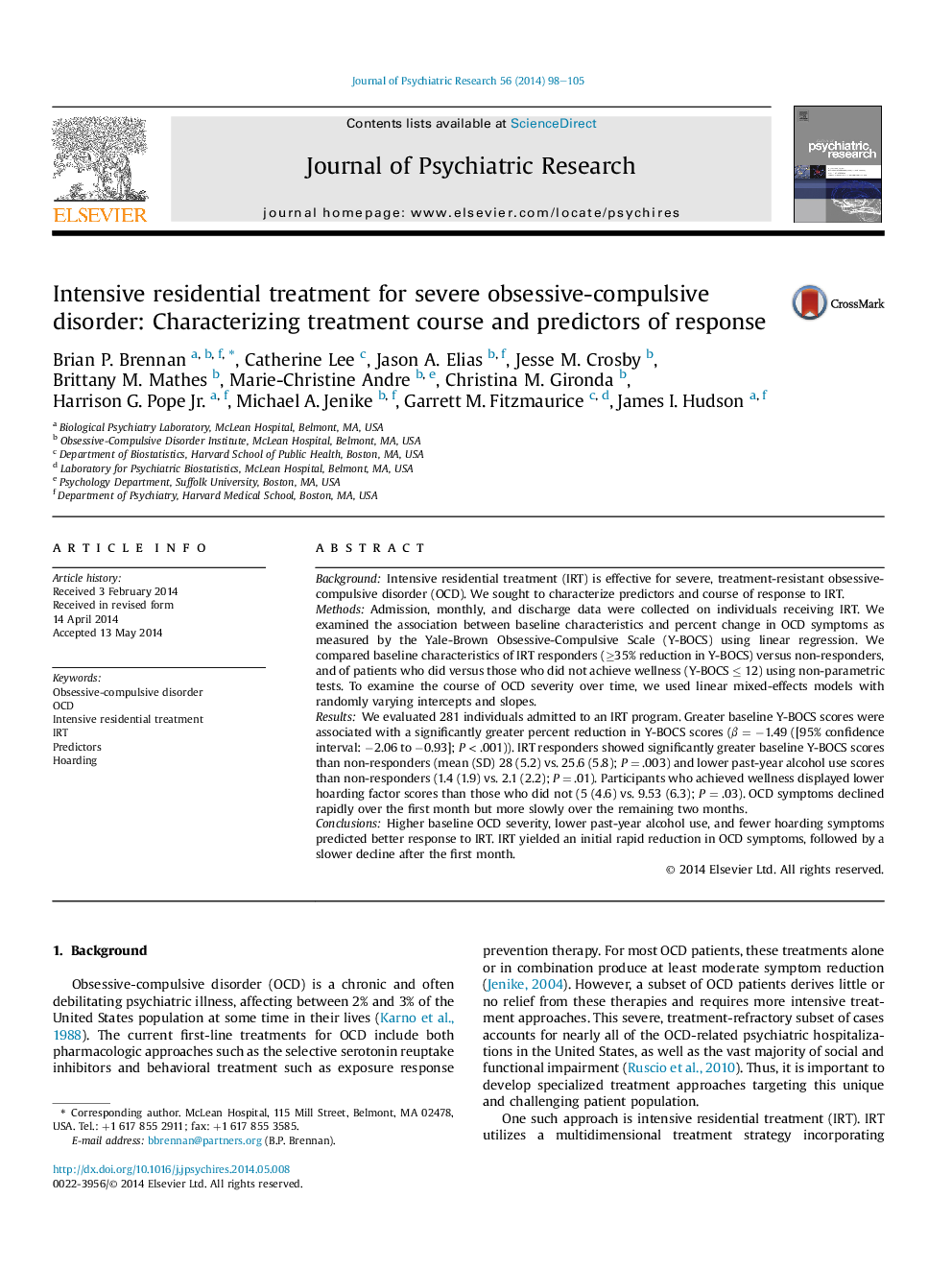| کد مقاله | کد نشریه | سال انتشار | مقاله انگلیسی | نسخه تمام متن |
|---|---|---|---|---|
| 326989 | 542678 | 2014 | 8 صفحه PDF | دانلود رایگان |
BackgroundIntensive residential treatment (IRT) is effective for severe, treatment-resistant obsessive-compulsive disorder (OCD). We sought to characterize predictors and course of response to IRT.MethodsAdmission, monthly, and discharge data were collected on individuals receiving IRT. We examined the association between baseline characteristics and percent change in OCD symptoms as measured by the Yale-Brown Obsessive-Compulsive Scale (Y-BOCS) using linear regression. We compared baseline characteristics of IRT responders (≥35% reduction in Y-BOCS) versus non-responders, and of patients who did versus those who did not achieve wellness (Y-BOCS ≤ 12) using non-parametric tests. To examine the course of OCD severity over time, we used linear mixed-effects models with randomly varying intercepts and slopes.ResultsWe evaluated 281 individuals admitted to an IRT program. Greater baseline Y-BOCS scores were associated with a significantly greater percent reduction in Y-BOCS scores (β = −1.49 ([95% confidence interval: −2.06 to −0.93]; P < .001)). IRT responders showed significantly greater baseline Y-BOCS scores than non-responders (mean (SD) 28 (5.2) vs. 25.6 (5.8); P = .003) and lower past-year alcohol use scores than non-responders (1.4 (1.9) vs. 2.1 (2.2); P = .01). Participants who achieved wellness displayed lower hoarding factor scores than those who did not (5 (4.6) vs. 9.53 (6.3); P = .03). OCD symptoms declined rapidly over the first month but more slowly over the remaining two months.ConclusionsHigher baseline OCD severity, lower past-year alcohol use, and fewer hoarding symptoms predicted better response to IRT. IRT yielded an initial rapid reduction in OCD symptoms, followed by a slower decline after the first month.
Journal: Journal of Psychiatric Research - Volume 56, September 2014, Pages 98–105
